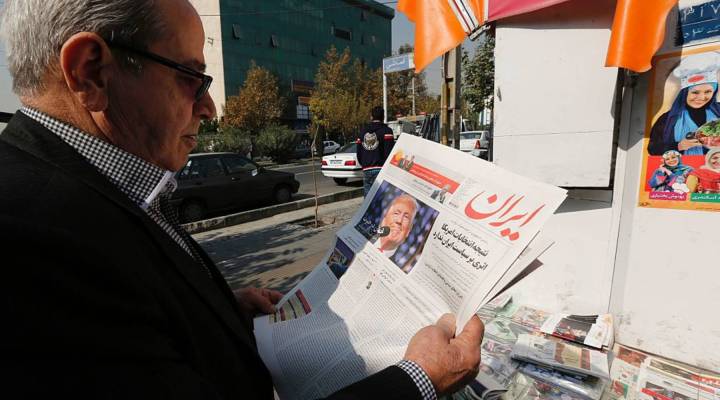
The travel ban, as seen from the Middle East

One of the things that happens with news is that, often, stories play differently here than they do overseas.
With that in mind, Marketplace Host Kai Ryssdal spoke with Borzou Daragahi, the Middle East correspondent for BuzzFeed News who is based in Istanbul, Turkey, to get a sense of the economic implications of the White House travel ban, as seen from abroad. Below is edited transcript of their conversation.
Kai Ryssdal: Give me the big picture first, would you, and some sense of how this ban looks from overseas.
Borzou Daragahi: Well I think that, for a large part, many people in the Middle East and the broader Muslim world, based on my reporting and reading of the local press in these countries, they see it as kind of a discrimination against them, as discriminatory and example of the what they would consider the rising Islamophobia in the West. So, it’s definitely perceived that way.
Ryssdal: Do you hear, or read or talk to people who say, “You know what? I’m just not going to bother going to the states. I don’t want to do business over there. I don’t want to try to go to school there. I don’t want to invest, just the heck with them.”
Daragahi: I hear that a lot and I’ve been hearing that for a few years now and that’s going to intensify right now as a matter of fact. I was looking at reports in U.S. news outlets, as well as other news outlets, about India, China, Malaysia, Indonesia — institutions in these countries including schools, tour operators and investors. Chambers of commerce seeing this as an opportunity, it’s like, “Hey, if you’re a rich dude or a lady and you want to invest, if you’re a promising student you want to study, if you’re looking for a vacation, don’t go to the U.S., forget them. Come visit us, come here and spend your money here.” So, already people are exploiting this, people that we should consider U.S. economic rivals are exploiting the visa ban to make bank.
Ryssdal: When you go out for a cup of coffee or whatever on the corner there in Istanbul, is this a topic of conversation?
Daragahi: Oh absolutely. Trump and his policies and his administration are front and center here. Itt’s constantly on the television. People are talking about it. It’s in the front pages of newspapers, and officials in Turkey were rather welcoming to the Trump administration — rather disillusioned by the administration of Barack Obama — even they, in the last few days, have begun to speak out. Prominent voices in the government condemning the visa ban, seeing it as message to the broader Muslim world, including the Turks, which are also an essential ally in the fight against ISIS, a NATO partner, and you know the host of a massive U.S. airbase that is crucial to U.S. operations in this part of the world.
Click the audio player above to hear the full interview.
There’s a lot happening in the world. Through it all, Marketplace is here for you.
You rely on Marketplace to break down the world’s events and tell you how it affects you in a fact-based, approachable way. We rely on your financial support to keep making that possible.
Your donation today powers the independent journalism that you rely on. For just $5/month, you can help sustain Marketplace so we can keep reporting on the things that matter to you.


















